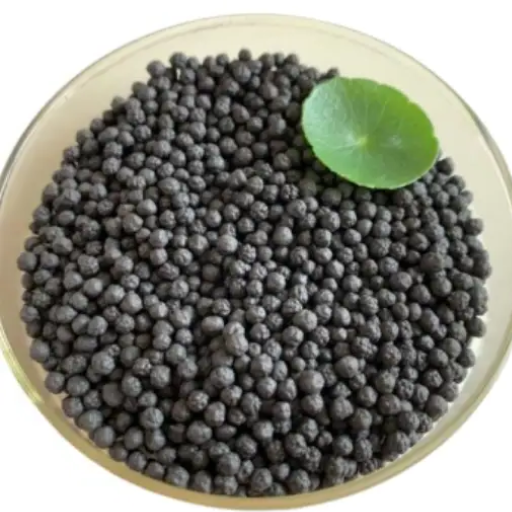Organic farming continues to gain momentum as farmers and consumers alike seek sustainable and eco-friendly agricultural practices. At the heart of successful organic farming lies the health of the soil, which directly impacts crop yields and quality. Enter potassium humate – a natural, powerful soil enhancer that promises to revolutionize the way organic farms flourish. This article will explore how potassium humate works, its incredible benefits for soil structure and nutrient absorption, and why it is becoming a staple in the toolkit of modern organic farmers. Whether you’re a seasoned farmer or simply curious about sustainable agriculture, this is your gateway to unlocking the potential of nature’s hidden treasure.
Understanding Potassium Humate and Its Role in Agriculture
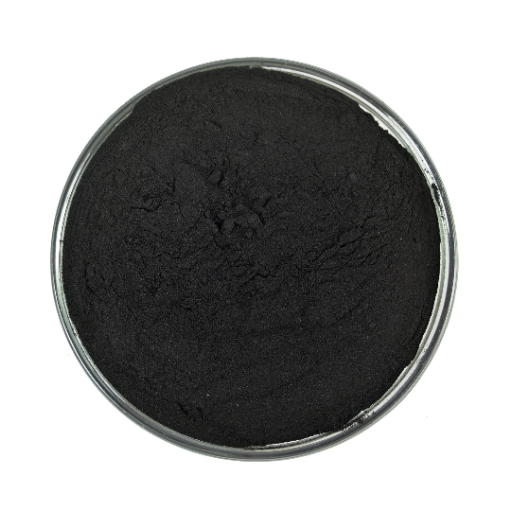
What is Potassium Humate?
Potassium humate is a water-soluble substance obtained from leonardite or other natural deposits rich in humic substances. The dominant components are humic and fulvic acids, which are important organic compounds that enhance soil fertility and support plant growth.
Key characteristics of potassium humate:
- Water-soluble for easy application
- Rich in humic and fulvic acids
- Natural chelating agent
- Environmentally friendly
- Improves nutrient availability
Potassium Humate vs. Humic Acid: Understanding the Difference
| Characteristic | Potassium Humate | Humic Acid |
|---|---|---|
| Solubility | Water-soluble | Water-insoluble in acidic conditions |
| Application Speed | Fast-acting | Slow-release |
| Primary Use | Direct plant nutrition | Long-term soil conditioning |
| Application Method | Liquid fertilizers, foliar sprays, drip irrigation | Soil amendment, granular application |
| Versatility | High – multiple application methods | Moderate – primarily soil-based |
How Potassium Humate Enhances Photosynthesis
Potassium humate improves photosynthesis through several mechanisms:
- Enhanced Nutrient Uptake: Improves absorption of magnesium and iron, essential components of chlorophyll
- Root Development: Promotes stronger root systems for better water and mineral absorption
- Soil Health: Improves soil structure and cation exchange capacity
- Stress Resistance: Helps plants handle environmental stress while maintaining optimal photosynthesis
Benefits of Potassium Humate for Organic Farming
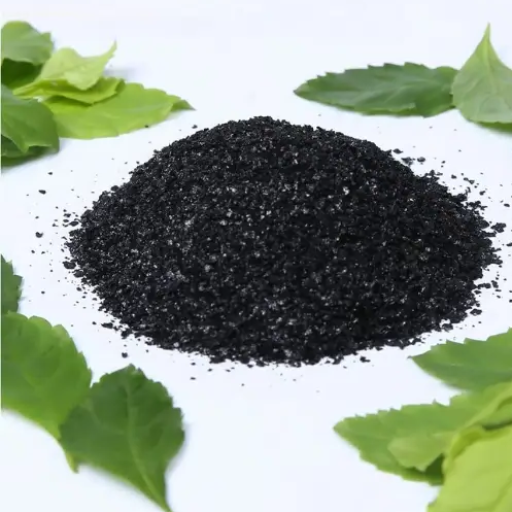
Improving Soil Structure with Organic Material
Potassium humate creates significant improvements in soil structure through:
- Particle Aggregation: Binds soil particles together to form stable aggregates
- Enhanced Aeration: Creates spaces for air movement and root penetration
- Water Retention: Improves soil’s ability to hold and release water efficiently
- Erosion Protection: Stabilizes soil structure to prevent nutrient loss
- Increased CEC: Improves cation exchange capacity for better nutrient retention
Enhancing Nutrient Absorption
Research Highlight: Studies show that potassium humate can significantly improve nitrogen efficiency in soil production systems, preventing losses through leaching and volatilization, especially in sandy soils or those with low organic matter content.
Key mechanisms for enhanced nutrient absorption:
- Chelation of essential minerals (iron, calcium, magnesium)
- Prevention of nutrient precipitation in soil
- Promotion of root elongation and surface area expansion
- Support for beneficial soil microorganisms
- Improved water retention in the root zone
Application Methods for Potassium Humate
Liquid vs. Granular Applications
| Aspect | Liquid | Granular |
|---|---|---|
| Uptake Speed | Rapid | Gradual |
| Application Method | Precise | Broad |
| Release Rate | Instant | Slow |
| Equipment Compatibility | High | Moderate |
| Soil Effect | Boosts microbes | Builds structure |
| Best Application | Foliar/Drip irrigation | Pre-planting |
| Cost | Higher | Lower |
Best Practices for Different Crop Types
Leafy Vegetables (Spinach, Lettuce):
- Use liquid formulations for rapid nutrient uptake
- Apply via foliar spray or drip irrigation
- Focus on short growth cycles with immediate nutrient availability
Field Crops (Corn, Wheat):
- Granular applications work best for long-term nutrient supply
- Apply before planting to condition soil
- Provides steady nutrient release throughout growing season
Common Misconceptions About Potassium Humate
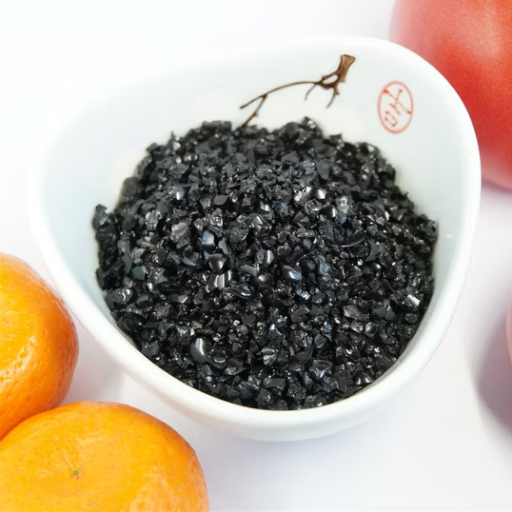
Myth: Potassium Humate is Just a Fertilizer
Reality: While potassium humate does improve soil fertility, it functions far beyond conventional fertilizers. It acts as a comprehensive soil conditioner that:
- Improves water retention and cation exchange capacity
- Stimulates soil microbial activity
- Reduces salt stress in arid regions
- Prevents nutrient runoff and erosion
- Maintains optimal soil pH levels
Myth: All Humic Products are the Same
Reality: Humic products vary significantly in:
- Source materials: Leonardite vs. compost vs. peat
- Processing methods: Advanced extraction vs. basic processing
- Molecular composition: Humic acids vs. fulvic acids
- Concentration levels: Active ingredient percentages
- Stability and solubility: Bioavailability in agricultural systems
Key Benefits of Soluble Potassium Humate
1. Enhanced Nutrient Uptake
Increases availability and efficiency of essential nutrients by chelating minerals like iron, zinc, and magnesium for better plant absorption.
2. Improved Soil Structure
Enhances soil aggregation by binding particles, improving aeration, water retention, and reducing compaction.
3. Stimulated Root Development
Promotes growth of fine root hairs and elongation of root systems, enabling better water and nutrient access.
4. Increased Drought Resistance
Enhances soil water-holding capacity, helping plants withstand water stress and irregular rainfall patterns.
5. Reduced Fertilizer Leaching
Retains applied fertilizers within the root zone, reducing runoff and leaching while promoting efficient fertilizer use.
Choosing the Right Potassium Humate Product
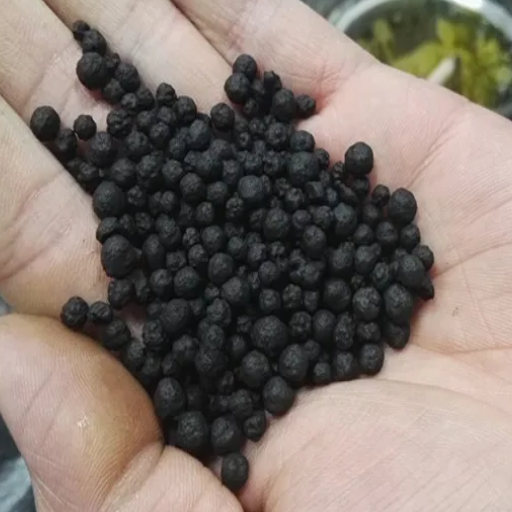
Factors to Consider When Selecting a Product
- Source and Purity: Look for high-purity products from quality sources like leonardite
- Formulation Type: Choose between liquid, powder, or granules based on application method
- Concentration: Check humic and fulvic acid content levels
- Solubility: Ensure compatibility with irrigation and spraying systems
- Certifications: Look for research-backed products with quality assurance
Recognizing Quality and Purity
Quality indicators to look for:
- High humic acid content (expressed as percentage)
- Complete water solubility
- Superior raw materials (leonardite, lignite)
- Optimal pH levels for soil compatibility
- Laboratory testing and certifications
- Low heavy metal content
Tips for Effective Usage in Organic Farming
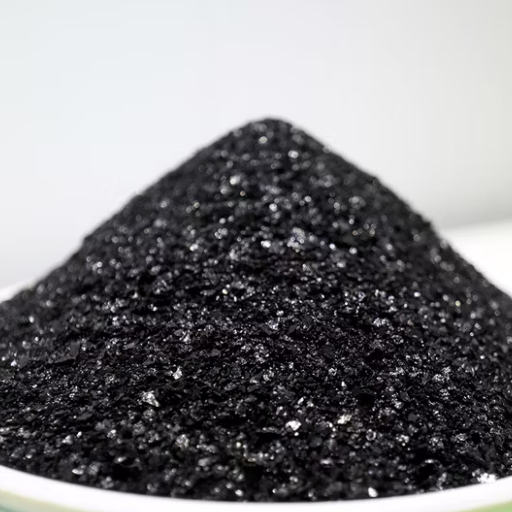
Application Guidelines
1. Application Tools and Dosages:
- Conduct soil tests to determine specific needs
- Follow recommended application rates
- Avoid overapplication to prevent nutrient imbalances
2. Timing and Method of Application:
- Apply during crucial crop growth stages
- Use fertigation, foliar application, or soil amendment methods
- Ensure even distribution for optimal results
3. Combining with Other Inputs:
- Use alongside organic amendments like compost and manure
- Avoid mixing with strong acids or incompatible substances
- Enhance microbial activity through strategic combinations
4. Environmental Considerations:
- Apply during early morning or late afternoon
- Avoid application before heavy rains
- Monitor weather conditions for optimal timing
5. Monitoring and Adjustment:
- Track crop growth and soil health regularly
- Adjust application rates based on results
- Maintain detailed records for future reference
Frequently Asked Questions (FAQ)
A: Potassium humate is a highly concentrated organic compound derived from humic acid, specifically the potassium salt of humic acid. It plays a significant role in improving soil properties, enhancing soil fertility, and increasing crop yields in organic farming by improving nutrient availability and supporting overall plant health.
A: Potassium humate enhances seed germination by improving soil conditions and nutrient availability. This leads to faster and more uniform germination across various crops, along with stronger root development in early growth stages.
A: Yes, potassium humate significantly improves soil fertility by enhancing soil structure, increasing microbial activity, improving nutrient retention, and acting as an ideal organic fertilizer for various farming practices.
A: Potassium humate positively influences plant health by improving nutrient absorption and facilitating photosynthesis. This results in stronger root systems, better resistance to pests and diseases, and enhanced growth and productivity.
A: Potassium humate can be used in various soil types and adapts to different conditions while improving soil compaction. However, specific benefits may vary depending on the crop type and existing soil properties.
A: Potassium humate can be applied through soil application, irrigation water, or foliar spray methods. For optimal results, follow manufacturer’s guidelines and ensure even distribution to maximize effects on plant growth and development.
A: By improving soil fertility and structure, potassium humate enhances plants’ ability to absorb nutrients more efficiently, which directly contributes to increased crop yields. This makes it valuable for organic farming strategies aimed at maximizing yield potential.
A: While potassium humate doesn’t act as a pesticide, its role in improving overall plant health enhances plants’ natural defenses against pests and diseases. Healthier plants are generally more resilient and can better withstand pest pressures.
A: Yes, potassium humate is an environmentally friendly organic input that supports sustainable farming practices. It enhances soil health and plant growth without harming the environment, making it a preferred choice for organic farmers.
A: Potassium humate is particularly beneficial for seedlings as it promotes stronger root development and healthier growth. When used in early plant growth stages, it significantly enhances seedling vigor and establishes a robust foundation for future productivity.
Conclusion: Potassium humate represents a powerful, natural solution for organic farmers seeking to enhance soil health, improve crop yields, and maintain sustainable agricultural practices. By understanding its proper application and benefits, farmers can unlock the full potential of this remarkable soil enhancer for long-term agricultural success.



